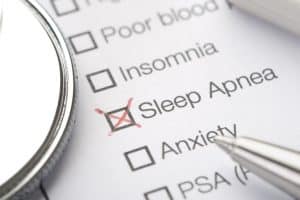Strategies for Managing Sleep Apnea
 Sleep apnea occurs when you have trouble breathing freely throughout the night while sleeping. This causes you to stop breathing from time to time, which can wake your body up from sleep. Managing your sleep apnea can help prevent further health problems from developing.
Sleep apnea occurs when you have trouble breathing freely throughout the night while sleeping. This causes you to stop breathing from time to time, which can wake your body up from sleep. Managing your sleep apnea can help prevent further health problems from developing.
What Causes Sleep Apnea?
Sleep apnea can happen when you have a narrowed airway that makes it hard for air to pass through as you’re sleeping. Your tongue can fall back, blocking air from getting through, which results in paused breathing. You have a higher risk of developing sleep apnea if you have an obstruction of airflow, such as being overweight.
What Are Symptoms of Sleep Apnea?
It can be difficult to know that you have sleep apnea since you might not be aware of waking up frequently during the night. Symptoms that others might notice include snoring or making a choking sound while sleeping. You might also feel tired or drowsy throughout the day due to lack of sleep. A lack of good sleep quality from sleep apnea can also increase your risk of making errors in judgement and affect other aspects of cognitive function.
What Are the Risks of Sleep Apnea?
When you have sleep apnea, you can end up having a higher risk of developing serious and chronic health problems. Sleep apnea has been linked to an increased risk of developing heart disease, diabetes, and other health issues. Your immune system function can also be affected by poor sleep quality, which makes you more vulnerable to getting sick with viruses and other infectious diseases.
What Are the Best Ways to Manage Sleep Apnea?
There are several ways to help you manage your sleep apnea as well as sleep better. Including:
Oral Devices
Tongue retaining devices and other oral devices help keep your tongue from blocking your airway as you sleep.
CPAP Machines
This type of a machine includes a mask that you wear at night, which helps you breathe normally for sound sleep.
Sleep Apnea Pillows
You can use these pillows with or without a CPAP machine to help elevate your body from the waist up, which helps prevent your airway from collapsing while you sleep.
Weight Loss
Losing excess weight can help you manage sleep apnea as obesity is considered a risk factor for this sleep disorder.
Keep in mind that you might need to try out a few different methods before you find one that effectively works for you.
If you have been struggling with sleep apnea and are looking for ways to manage it, contact eos dental sleep to set up an appointment. We can help determine the cause of your sleep issues, recommend, and provide our best treatment options.
